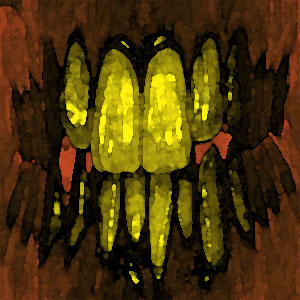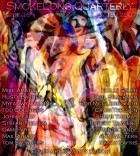The “road” story rarely has father and son together; more often than not, it’s the kid, alone, searching for the parent who can never be found. But they’re together here—and also not. What drew you to this road and this story?
I think I was inspired by one of those “Have You Seen Us?” fliers that you get in the mail. They often show a father who has taken off with his own child. The flier is a desperate effort to recover the child. I’ve often wondered about the story behind the flier. So, I guess I wrote a version. The road I picked is I-75 in Michigan. That’s the nice part of Michigan for a writer. If your character has a big decision to make, you can always have them make it near the five-mile-long Mackinac Bridge. It becomes a pretty symbolic bridge that in this case the father has crossed with his son in tow into a darkness they do not fully understand.
A complex ending for the kid and dad. Why end here?
Well, actually, these two stayed with me so fiercly that I eventually blew their story up into Threatened Species—a novella told in flash fiction. “Disappearances” is chapter five from the novella. The entire thing is forty-two chapters, so their story goes on for some time before it reaches any definitive ending. About five of the chapters have been published as stand-alone pieces, which is what I wanted. I wanted each chapter to stand on its own and be a part of the whole.
“Sometimes things don’t make sense.” The myth of stories is that everything does make sense eventually. How important/hard was it capture that sense of a world not making sense?
I think for a father about to lose his son and a son about to move to France with a step-father and mother, the world must feel pretty chaotic. Throughout the novella, the father questions what he is doing and the son, oblivious that he’s being kidnapped, thinks about France and the friends he has to leave behind. Almost everything they talk about on the trip, like the grayling, is about losing with no hope of recovering. I think as you read the novella, like with “Disappearances”, their topics of conversation become quite significant and symbolic. But also, hopefully, believable.
A novel just out! Congrats. What can you tell us about it—from process to publication and beyond.
Yes, my novel, Into the Desperate Country (March Street Press). In its first life, it was a short story. But, the character ate at me long after the story was finished. So, I expanded his tale into a very clunky novel. Eventually, after editorial advice from Bottom Dog Press’ Larry Smith and March Street Press’ Robert Bixby, I was able to turn the thing into a decent read. In short, it gets at what we give up when we follow the easy path that society sets up—and how difficult it can be to discover our true selves. Plus, it’s got violence and sex. I have a sequel in mind, but the first book would have to do much better in terms of sales before I could begin to write the second. Isn’t that sad—the way money dictates art.
At the AWP conference, a number of writers talked about their old flames, books that have influenced them during a formative time in their lives—and ones they return to for lessons in writing and, of course, life. Discuss your old flame, both what it meant to you then and what it means to you now.
It’s cliché, but I read Ernest Hemingway’s “Big Two-Hearted River” every year. I was just starting to write stories when I started reading Papa’s fishing classic and, inadvertently, he taught me a great deal about style, about saying without saying, and the importance of what isn’t said. Plus, I just love the theme of that story—pysche as phoenix rising from the flames of loss and hopelessness. It’s a great story to have as a model. I could pick it up right now and learn something about writing, even though I’ve read it fifteen times.



 A SmokeLong Summer 24!
A SmokeLong Summer 24!